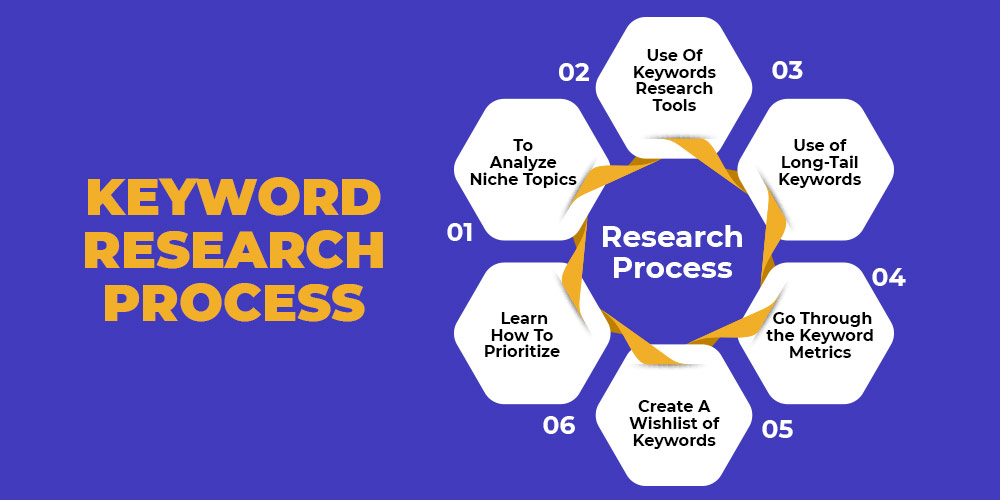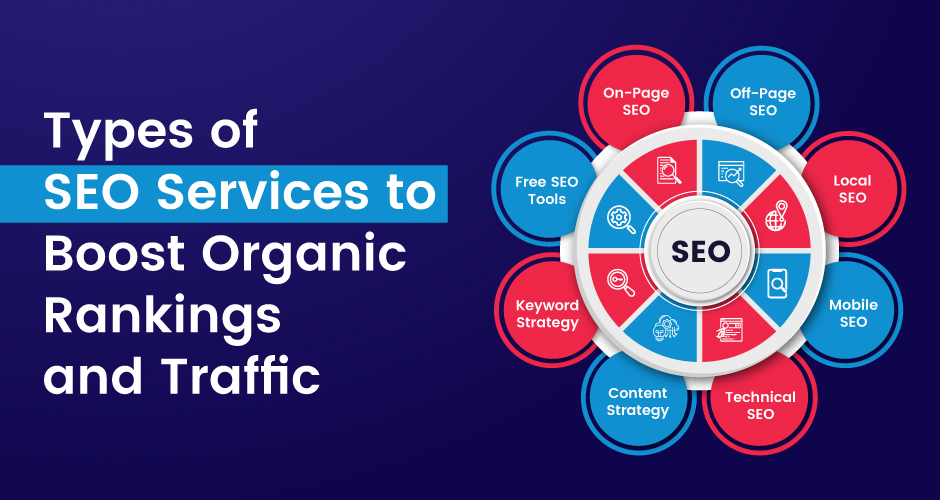
Keyword research is a fundamental aspect of SEO that can significantly impact your website’s visibility and traffic. In this comprehensive guide, we will delve into the intricate process of keyword research, providing you with valuable insights and practical techniques to elevate your SEO strategy. Whether you’re a novice or an experienced marketer, understanding keyword research is crucial for optimizing your content and reaching your target audience effectively.
Talking Points:
- Importance of Keyword Research in SEO: Uncover the vital role of keyword research in enhancing your website’s search engine rankings and attracting relevant organic traffic.
- Brief Overview of the Article Content: Gain a thorough understanding of the step-by-step process involved in keyword research, exploring different methods and tools for comprehensive analysis.
- Target Audience: This guide is tailored to beginners seeking to grasp the fundamentals of keyword research and its integration into a robust SEO strategy. Whether you’re a website owner, content creator, or digital marketer, this article will equip you with actionable insights to propel your online presence.
Understanding Keyword Research
The process of keyword research for SEO involves finding and analyzing search terms to inform content and marketing strategies, target specific searches for more traffic, and identify trends and relevant topics. It helps in ranking higher in search engine results and acquiring customers through targeted content. The keyword research process includes steps such as listing important topics, filling them with keywords, analyzing competition, and prioritizing based on relevance, volume, and competition.

Definition of Keyword Research
Keyword research is the practice of identifying popular words and phrases that people enter into search engines. It is a crucial component of SEO as it helps in understanding what your target audience is looking for.
Purpose of Keyword Research in SEO Strategy
The primary purpose of keyword research in an SEO strategy is to understand the language used by your target audience when searching for information, products, or services online. This insight allows you to optimize your content to match those search queries, thereby increasing the likelihood of your website appearing in search engine results.
Steps for Conducting Effective Keyword Research
Step 1: Brainstorming Relevant Topics and Seed Keywords
Begin by brainstorming broad topics related to your business or industry. These topics will serve as the foundation for generating seed keywords.
Step 2: Expanding Your Keyword List with Different Methods
- Competitor Analysis: Analyze the keywords that your competitors are targeting. Tools like Ahrefs and SEMrush can provide valuable insights into their top-performing keywords.
- User Intent Understanding: Consider the intent behind different search queries. Are users looking for information, trying to make a purchase decision, or seeking a specific website?
Step 3: Refining Your List with the Right Criteria
- Search Volume: Evaluate the average monthly search volume for each keyword. Higher search volumes indicate greater potential traffic.
- Competition Level: Assess the level of competition for each keyword. High competition may make it challenging to rank for certain keywords.
Step 4: Prioritizing Keywords for Targeting
Prioritize keywords based on their relevance to your business, search volume, and competition level. Focus on long-tail keywords that are more specific and indicative of user intent.
By following these steps, you can build a comprehensive list of targeted keywords that align with your SEO goals.
By understanding the importance of each step in the keyword research process, you can effectively lay the groundwork for a successful SEO strategy that resonates with your target audience’s search behavior.

Utilizing Tools for Comprehensive Keyword Research
In addition to Google Keyword Planner, there are several other powerful tools available that can enhance your keyword research process. These tools provide valuable insights and data to help you uncover high-performing keywords and gain a competitive edge in the SEO landscape. Let’s explore some of these tools:
Ahrefs
Ahrefs is a widely popular SEO tool known for its comprehensive features and extensive database. It offers a range of functionalities to assist with keyword research, backlink analysis, competitor analysis, content exploration, and more.
When it comes to keyword research, Ahrefs provides valuable data on search volume, keyword difficulty, and click-through rates (CTR). Its Keywords Explorer feature allows you to discover new keyword ideas by entering a seed keyword or analyzing a competitor’s website.
A unique aspect of Ahrefs is its Keyword Difficulty (KD) metric, which assesses the competition level for a particular keyword. This helps you identify keywords that have relatively lower competition and higher opportunities for ranking.
SEMrush
SEMrush is another popular SEO tool that offers a range of features for comprehensive keyword research. It provides detailed insights into organic search traffic, competitor analysis, backlink profiling, and more.
With SEMrush’s Keyword Magic Tool, you can discover new keyword ideas by entering a seed keyword or analyzing your competitor’s website. The tool provides data on search volume, keyword difficulty, and competitive density.
SEMrush also offers an advanced feature called “Keyword Gap Analysis,” which allows you to compare your website’s keywords with those of your competitors. This helps you identify gaps in your keyword strategy and uncover new opportunities.
Ubersuggest
Ubersuggest is a user-friendly keyword research tool that provides valuable insights into search volume, keyword difficulty, and related keywords. Developed by renowned digital marketer Neil Patel, Ubersuggest aims to simplify the keyword research process for beginners.
With Ubersuggest, you can enter a seed keyword and quickly generate a list of related keywords, along with their search volume, CPC (cost per click), and competition level. It also provides data on the top-ranking pages for each keyword, giving you insights into the competition and content opportunities.
One unique feature of Ubersuggest is its ability to uncover long-tail keywords. Long-tail keywords are more specific and have lower competition, making them easier to rank for. Ubersuggest helps you identify long-tail variations of your target keywords, allowing you to optimize your content for better visibility.
Utilizing these tools in combination with Google Keyword Planner can provide a more comprehensive and data-driven approach to keyword research. Each tool has its own strengths and features that can help you uncover valuable insights and opportunities for your SEO strategy.
Remember that while these tools provide valuable data, it’s important to analyze and interpret the information wisely. Use them as a guide to understand user intent, assess competition, and prioritize keywords based on relevance and potential impact.
By leveraging the power of these tools, you can gain a deeper understanding of keyword trends, uncover untapped opportunities, and optimize your content for higher search engine rankings.
1. Ahrefs
When it comes to comprehensive keyword research, Ahrefs is one of the top tools that professionals rely on. It offers a wide range of features and benefits that make it a go-to choice for SEO experts. Here’s a detailed guide on how to use Ahrefs for keyword research:
- Keyword Explorer: Ahrefs’ Keyword Explorer allows you to find new keyword ideas and analyze their search volume, click-through rate (CTR), keyword difficulty, and more. You can enter a seed keyword or a URL to generate relevant keyword suggestions.
- Competitor Analysis: Ahrefs enables you to analyze your competitors’ organic search traffic by entering their domain in the Site Explorer tool. This helps you uncover the keywords they are ranking for, giving you valuable insights into their SEO strategy.
- Content Gap Analysis: With Ahrefs, you can identify gaps in your content strategy by comparing your website with your competitors’. By entering multiple domains in the Content Gap tool, you can find keywords that your competitors are ranking for but you are not.
- SERP Overview: Ahrefs provides a comprehensive overview of the search engine results pages (SERPs) for any given keyword. This includes organic search results, paid results, and featured snippets. You can analyze the SERP features for your target keywords to understand user intent and optimize your content accordingly.
- Rank Tracker: Ahrefs offers a Rank Tracker tool that allows you to monitor your keyword rankings over time. You can track your progress, identify opportunities for improvement, and adjust your SEO strategy accordingly.
- Backlink Analysis: In addition to keyword research, Ahrefs also provides valuable insights into backlinks. You can analyze your own backlink profile as well as those of your competitors to identify link-building opportunities and improve your website’s authority.
Remember that while Ahrefs is a powerful tool, it’s important to use it in conjunction with other keyword research tools to get a complete picture. Each tool has its own strengths and weaknesses, so it’s worth exploring multiple options to refine your keyword strategy.
2. SEMrush
SEMrush is an essential tool for SEO professionals and marketers when it comes to advanced keyword research techniques. It offers a wide range of features that allow deep keyword analysis and provide valuable insights for optimizing your content strategy.
Here are some key points to know about SEMrush:
Competitive Analysis
- Identify top competitors for specific keywords
- Gain insights into their strategies
- Helpful in refining your own keyword targeting approach
Keyword Gap Analysis
- Compare your website’s performance with that of your competitors
- Identify untapped keyword opportunities
- Find areas where you may be lagging behind
Organic Research
- Uncover valuable organic search data
- Discover the keywords that your competitors are ranking for
- Use this information to improve your own keyword targeting strategy
Keyword Magic Tool
- Explore relevant keywords and long-tail variations
- Build a strong keyword list tailored to your niche or industry
Position Tracking
- Monitor your keyword rankings over time
- Evaluate the effectiveness of your SEO efforts
- Make informed decisions based on data
In addition to these features, SEMrush also offers domain analytics, backlink analysis, site audit, and various other tools that contribute to a comprehensive SEO strategy. Its user-friendly interface and powerful functionality make it a preferred choice for professionals looking to enhance their keyword research efforts.
3. Ubersuggest
Uncovering Long-Tail Keywords with Ubersuggest
Ubersuggest is a powerful keyword research tool that offers unique features to uncover long-tail keywords and provide valuable insights for your SEO strategy.
Features and Benefits of Ubersuggest:
- Keyword Suggestions: Ubersuggest generates extensive lists of keyword suggestions based on your seed keywords. It provides related long-tail keywords and phrases that you may not have considered, helping you diversify your keyword portfolio.
- Search Volume and Competition Analysis: The tool provides data on search volume and competition for each keyword, allowing you to prioritize keywords based on their potential impact and level of difficulty.
- Content Ideas: Ubersuggest offers content ideas and suggestions based on popular topics and related keywords. This feature can inspire new content creation and help you align your strategy with trending topics.
- Competitor Analysis: You can analyze your competitors’ top-performing pages and the keywords they rank for. This competitive insight can guide your own keyword targeting and content optimization efforts.
- Backlink Data: Ubersuggest provides backlink data for any domain or URL, allowing you to assess the link profile of competing websites and identify potential link building opportunities.
In summary, Ubersuggest is a comprehensive keyword research tool that facilitates the discovery of long-tail keywords, competitive analysis, and content ideation. Its user-friendly interface and robust features make it a valuable asset for enhancing your SEO strategy.
Going Beyond Traditional Keyword Research
In the previous section, we discussed the importance of keyword research and explored topics such as identifying relevant topics and keywords for your niche, understanding the significance of long-tail keywords in SEO, and analyzing search intent for better keyword targeting. Now, let’s delve deeper into these concepts and explore additional aspects of going beyond traditional keyword research.
Considering Seasonality in Your Keyword Strategy
When conducting keyword research, it is crucial to consider seasonality in your keyword strategy. Seasonal keywords are search terms that exhibit periodic spikes in interest during specific times of the year. For example, keywords related to “holiday sales” or “summer fashion trends” may experience higher search volumes during certain months.
To identify seasonal keywords, you can use tools like Google Trends or SEMrush’s Keyword Magic Tool. These tools allow you to analyze the search volume trends for specific keywords over a period of time. By identifying seasonal keywords relevant to your industry or niche, you can optimize your content and marketing campaigns to capitalize on these trends and attract more targeted traffic.
Understanding Search Intent in Keyword Research
Search intent refers to the underlying motivation behind a user’s search query. Understanding search intent is crucial for effective keyword research as it helps you align your content with what users are looking for. There are three main types of search intent:
- Informational Intent: This type of intent indicates that the user is seeking information or answers to their questions. Keywords with informational intent often include phrases like “how to,” “what is,” or “tips for.”
- Navigational Intent: Navigational intent suggests that the user is looking for a specific website or resource. Keywords with navigational intent usually include brand names or specific URLs.
- Commercial Intent: Commercial intent signifies that the user is ready to make a purchase or engage in a transaction. Keywords with commercial intent often include modifiers like “buy,” “discount,” or “best price.”
To determine the search intent behind specific keywords, you can analyze the search engine results pages (SERPs) and observe the types of content that rank highly. By aligning your content with the appropriate search intent, you can increase the relevance of your website and attract more qualified traffic.
Differentiating between Informational, Navigational, and Commercial Intent
Differentiating between informational, navigational, and commercial intent is essential for effective keyword targeting. Let’s take a closer look at each type of intent:
Informational Intent
Keywords with informational intent are focused on providing valuable information to users. For example, someone searching for “how to lose weight” is likely looking for tips, guides, or articles on weight loss. To target keywords with informational intent, you can create informative blog posts, guides, or videos that answer common questions within your niche.
Navigational Intent
Keywords with navigational intent are aimed at helping users find a specific website or resource. For instance, a user searching for “Facebook login” is looking for the login page of Facebook. While it may not be suitable to target navigational keywords directly unless you are the brand or have relevant content related to that brand, understanding navigational intent can help you optimize your website’s usability and navigation structure.
Commercial Intent
Keywords with commercial intent indicate that users are ready to make a purchase or engage in a transaction. These keywords often include terms like “buy,” “discount,” or “review.” For example, someone searching for “best running shoes” is likely in the market to purchase running shoes. To target keywords with commercial intent, you can create product reviews, comparison guides, or landing pages optimized for conversion.
By understanding and targeting the different types of search intent in your keyword research, you can optimize your content strategy to align with what users are looking for at each stage of their buyer’s journey.
Evaluating Keyword Competition and Opportunity
Evaluating keyword competition and assessing keyword opportunity is a crucial step in effective keyword research for SEO. By analyzing competitor rankings and understanding the market share opportunities, you can gain valuable insights that will help you optimize your own content and improve your search engine rankings.
Importance of Analyzing Competitor Rankings and Assessing Keyword Opportunity
Analyzing competitor rankings allows you to understand the keywords they are targeting and how well they are performing in search engine results. This information can give you a clear picture of the keywords that are driving traffic to your competitors’ websites and help you identify potential gaps or opportunities in your own keyword strategy.
Assessing keyword opportunity involves evaluating the competitiveness and search volume of specific keywords. High competition keywords may be more difficult to rank for, while low competition keywords offer a better chance of ranking higher in search results. By finding the right balance between competition level and search volume, you can target keywords that have a higher chance of driving organic traffic to your website.
Using Tools for Competitor Analysis
There are several tools available that can help you analyze competitor rankings and gain insights into their keyword strategy. These tools provide valuable data on competitor performance, allowing you to identify their top-ranking keywords, backlink profiles, and overall SEO strategy. Some popular tools for competitor analysis include:
- Ahrefs: A comprehensive SEO tool that provides detailed insights into competitor rankings, backlink profiles, organic traffic estimates, and more. With Ahrefs, you can easily identify your competitors’ top-performing keywords and analyze their content strategy.
- SEMrush: Another powerful SEO tool that offers competitor analysis features. SEMrush allows you to track your competitors’ organic search positions, discover new competitors, and analyze their most successful keywords. It also provides data on paid search campaigns, backlinks, and social media performance.
- Moz: Moz offers a range of SEO tools, including a competitor analysis feature called Moz Pro. With Moz Pro, you can analyze your competitors’ keyword rankings, discover new opportunities, and track their performance over time. It also provides insights into link building opportunities and overall website health.
Utilizing Google Search Console for Insights on Competitor Performance
In addition to using third-party tools, you can also gain valuable insights on competitor performance through Google Search Console. This free tool provided by Google allows you to monitor your website’s presence in search results and provides important data on keywords, impressions, clicks, and average position.
To gain insights on your competitors’ performance, you can compare your website’s data with theirs in Google Search Console. By analyzing the keywords where your competitors are ranking higher than you, you can identify potential opportunities for improvement. You can also analyze the click-through rates (CTR) of different keywords to understand which ones are driving the most traffic.
Example:
Let’s say you run an e-commerce store selling organic skincare products. Your main competitor is a well-established brand in the same niche. By using tools like Ahrefs or SEMrush, you can analyze their website and identify the keywords they are ranking for. You may discover that they are targeting popular keywords such as “organic skincare,” “natural face moisturizer,” and “best anti-aging cream.”
Next, you can assess the competition level of these keywords and determine if it’s feasible for your website to rank for them. If the competition is too high, you can look for long-tail variations or related keywords with lower competition but still relevant to your target audience.
Additionally, by utilizing Google Search Console, you can compare your website’s performance with your competitor’s. If you notice that they are consistently outranking you for certain keywords with a higher CTR, it may indicate that they have optimized their content better or are offering more compelling meta descriptions and titles.
By regularly evaluating competitor rankings and assessing keyword opportunities, you can refine your own keyword strategy and stay competitive in the search engine results. Remember, keyword research is an ongoing process, and it’s essential to monitor and adapt your strategy based on the changing landscape of keywords and your competitors’ actions.
The Evolving Landscape of Keywords: Trends to Watch
The search landscape is always changing, which means that keyword trends are constantly evolving. To make sure your SEO strategy stays effective and up-to-date, it’s important to stay informed about the latest developments. Here are some key things to think about:
1. Adapting Your SEO Strategy with the Changing Nature of Keywords
Keep a close eye on emerging trends and shifts in search behavior. This may involve adjusting your existing keyword targeting or exploring new opportunities based on evolving search patterns.
2. Monitoring Competitive Landscape
Regularly assess the keywords that your competitors are targeting and how they’re performing in search results. This analysis can give you valuable insights into emerging trends and areas where you can gain a competitive advantage.
3. Leveraging Emerging Platforms and Technologies
With the continuous evolution of digital platforms and technologies, new keyword opportunities may arise. Stay informed about emerging platforms, such as voice search or visual search, and adapt your keyword research strategy accordingly.
4. Anticipating Industry-Specific Changes
Different industries may experience unique shifts in search behavior based on changing consumer preferences, market dynamics, or technological advancements. Stay updated on industry-specific trends to align your keyword research with the changing landscape.
By actively keeping track of these trends and adjusting your keyword research strategy, you can stay ahead of the game in the ever-changing world of SEO. Remember that being flexible and responsive to change is crucial for long-term success in keyword research and SEO strategy.
Conclusion
Start implementing the knowledge gained from this article and experiment with different keyword research strategies and tools.
Remember that ongoing keyword research is crucial for SEO success. It’s not a one-time task but a continuous process.
Here are some additional resources where you can further enhance your understanding of advanced keyword research techniques:
- Case studies
- Forums
FAQs (Frequently Asked Questions)
What is the purpose of keyword research in SEO?
Keyword research is essential in SEO as it helps in identifying the specific search terms that users are entering into search engines. By targeting the right keywords, websites can attract relevant traffic and improve their visibility on search engine results pages (SERPs).
What are the steps for conducting effective keyword research?
The steps for conducting effective keyword research include: Step 1: Brainstorming Relevant Topics and Seed Keywords, Step 2: Expanding Your Keyword List with Different Methods (e.g., Competitor Analysis, User Intent Understanding), Step 3: Refining Your List with the Right Criteria (e.g., Search Volume, Competition Level), Step 4: Prioritizing Keywords for Targeting.
How can Google Keyword Planner be used for SEO research?
Google Keyword Planner can be used for SEO research by providing insights into search volume, competition level, and suggested bid for specific keywords. It helps in identifying relevant keywords to target in SEO campaigns.
What are some popular keyword research tools?
Some popular keyword research tools include Google Keyword Planner, Ahrefs, SEMrush, and Ubersuggest. Each tool offers unique features and benefits for comprehensive keyword research.
What is the significance of understanding search intent in keyword research?
Understanding search intent in keyword research is crucial as it allows marketers to align their content with the specific needs and motivations of users. By targeting keywords that match user intent (e.g., informational, navigational, commercial), websites can deliver more relevant content and improve their chances of ranking higher on SERPs.
How can competitor analysis and assessing keyword opportunity impact SEO success?
Competitor analysis and assessing keyword opportunity are important in SEO as they provide insights into competitor rankings and market share opportunities. By understanding the competitive landscape and identifying untapped keyword opportunities, websites can refine their SEO strategy to gain a competitive edge and increase their visibility online.





